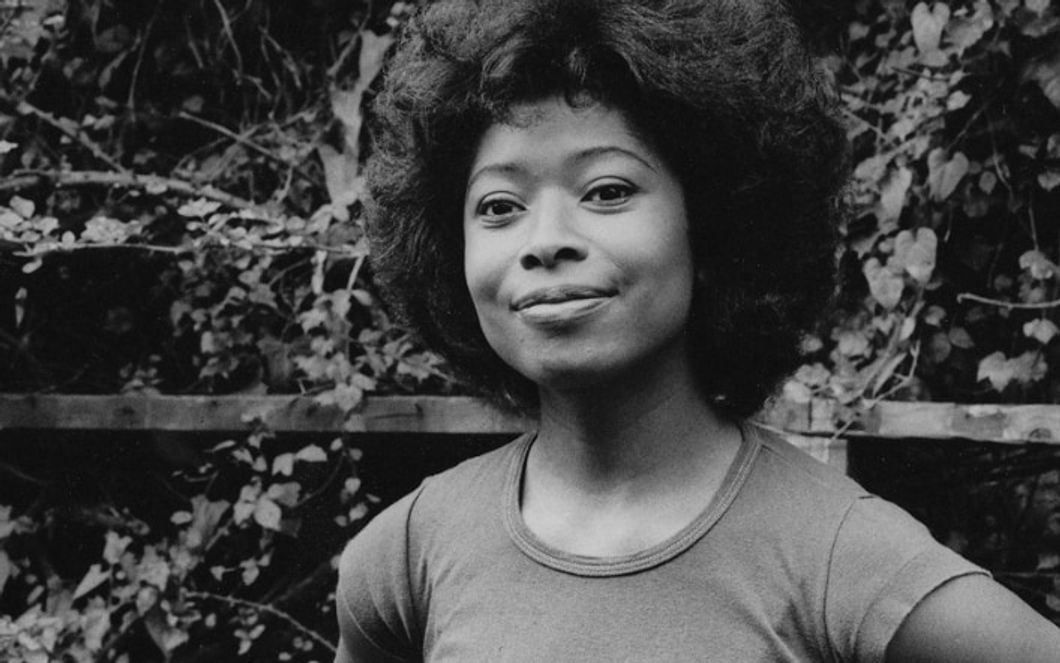Despite the neoliberal depiction of self-care as something only useful to white, bourgeois women, self care is rooted in Black feminist thought and a legacy of care and self-love politics. Writer, scholar and womanist Alice Walker defines a womanist as someone who "loves herself. Regardless", the act of self-love for Black women is direct opposition to white supremacist structures that posit that they are not worthy of love. Self-love and care is necessary in order to foster love for your community. The politics of love and care became more prominent during second-wave Black feminist thought. Scholar Patricia Hill Collins argues that the love for self and the love for Black people is a 'highly rebellious act." Politics of self care is strongly connected to the idea that the personal is political.
Audre Lorde, an activist, feminist theorist, and artist defines self care as a revolutionary act, because caring for ourselves under systems of oppression is resisting these structures. When fighting for our communities we must also remember to hold space for ourselves, so that we can continue our collective struggles. In her collection of essays A Burst of Light, Lorde delves into how her struggle with breast cancer is akin to her political struggle for survival in this "white-boy's world". For Lorde, continuing to live is a form of resistance. Feminist theorist and writer, Sara Ahmed states that survival is a form of radical action when one is a member of a group that is constantly under siege by oppressive systems. Detroit-based activist, doula, and writer Adrienne Maree Brown writes extensively about the pairing of pleasure and activist work in her book "Pleasure Activism". Brown centers erotic pleasure, intimacy and radical drug use as ways in freedom seeking practices, for Brown pleasure is not "frivilous" but is actually a signicant part of liberation.
Intersectionality (defined by Kimberle Crenshaw) is the way in which identities and systems of oppression overlap and impact the lived experiences of marginalized folks. Mainstream media often posits that self-care is something only attainable for those who are not struggling significantly under capitalism, this narrative erases what it means to care for yourself if you do not fit into the white, upper middle class mold. This white-washed definition of self-care does nothing to address the real structural and intersectional obstacles, and only considers the individual in conversations of care. It is important to recognize the structural harms that impede our wellness and figure out how we can curate our own forms of care that not only uplift you as an individual, but your community as well. It is important to remember that to focus only on the individual and to block out the collective is to play into neoliberal and capitalist ideologies.
So how do you decolonize self-care? The Audre Lorde Project focuses on the importance of community care and self-care being one in the same. The ALP website suggests doing a wellness plan, where you define what type of self-care you need (focused on your mind, body, soul, or community) then reaching out to someone in your community that may be able to support your needs. Another way to practice self-care is to set healthy boundaries and to only occupy spaces where you feel affirmed as a person, making your love of self and community a top priority.






















